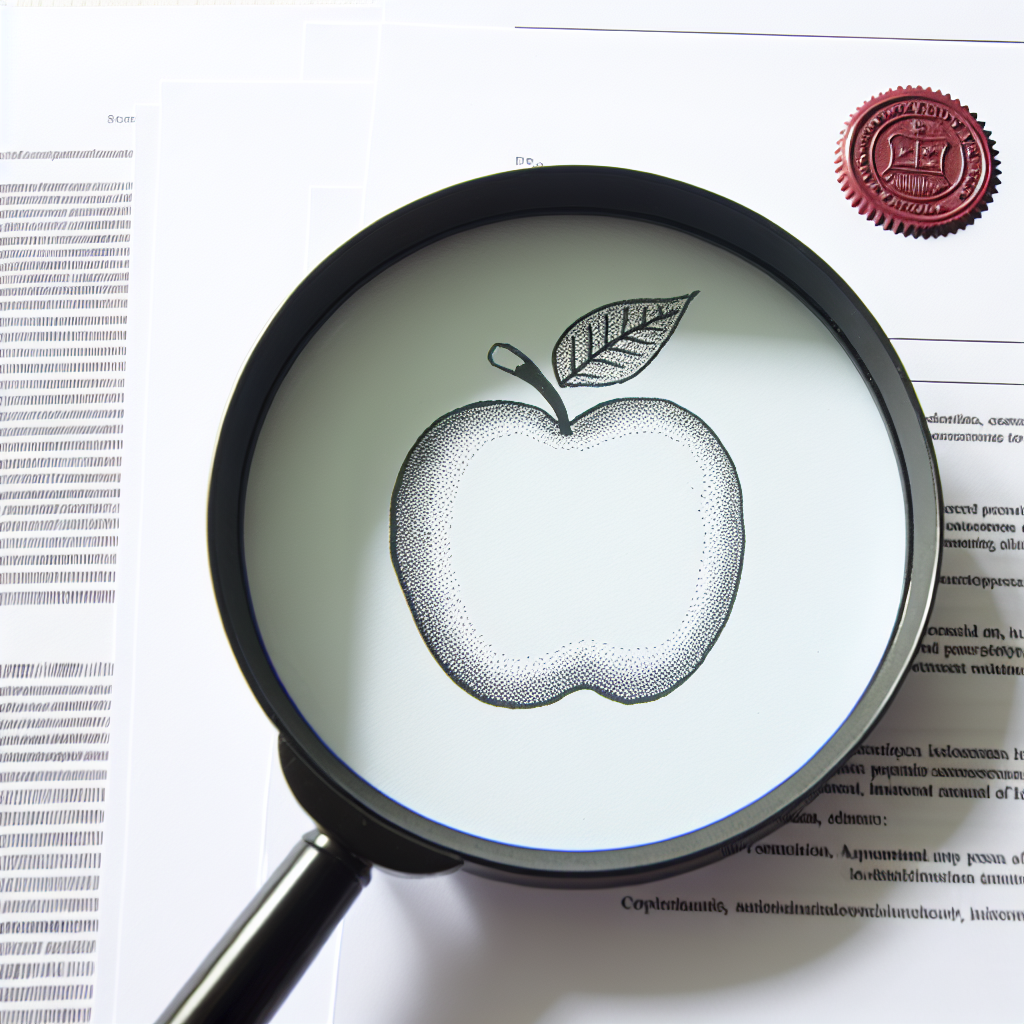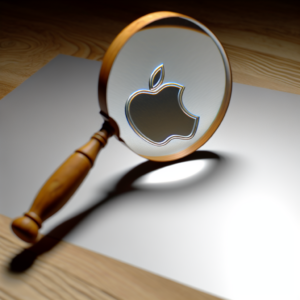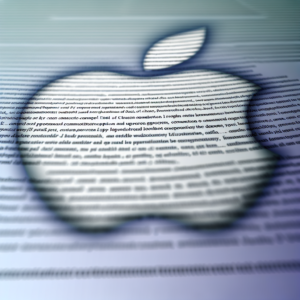Activities
Divisions
Programs
Activities
Divisions
Programs
What's the latest move from Tim Cook as Apple faces a lawsuit from the US Department of Justice for monopolistic practices and 'tight grip on the future'?
The legal action claims that Apple has more than 70% control over the US smartphone market in terms of revenue. Apple has a monopoly in the high-end smartphone market and uses a range of unlawful and anti-competitive tactics to keep its leading position.
The U.S. Justice Department, together with the top lawyers from 16 states and the District of Columbia, have lodged a legal challenge against Apple in a federal court. The litigation claims that Apple possesses a monopoly in the high-end smartphone industry and utilizes a range of unlawful and anti-competitive tactics to uphold its leading stance.
The lawsuit fundamentally revolves around Apple's dominance in the US smartphone industry, where it holds more than 70% of the market. The heavy restrictions Apple imposes on its app environment, in addition to this, are what prompted the DoJ to launch the lawsuit.
The lawsuit further claims that Apple's dominance enabled it to exert pressure on developers and customers to generate more income.
The anticipation has been building for the submission of the antitrust lawsuit. This lawsuit, along with the communication from both the Department of Justice and the group of states, is directly aimed at the iPhone. The Department of Justice is positioning this lawsuit as a crucial turning point for the future of technology.
The Department of Justice also contends that Apple's rise to power, partially aided by the 1998 antitrust lawsuit against Microsoft, indicates that another significant antitrust action is necessary to protect the progression of technology and innovation.
The lawsuit centers around the allegation that Apple's tight regulation of its products, including both its physical devices and software, creates barriers for competitors trying to break into the market and limits the choices available to customers.
This action follows closely on the heels of the European Commission slapping Apple with a substantial fine of €1.8 billion ($1.95 billion), stating analogous worries about the firm's conduct in relation to music streaming services.
In a statement seen on CNN, Attorney General Merrick Garland expressed his opinion that Apple's strategies not only stifle competition, but also lead to higher costs for consumers, developers, and other interested parties.
The legal action further claims that Apple has illegally dominated the software app industry, accusing the firm of exploiting its supreme influence over iOS to suppress creativity and hinder the growth of rival apps and services.
The complaint details allegations that Apple has hindered the incorporation of competitive technologies like Android messages in its devices, and has also blocked competing payment systems. The lawsuit argues that Apple maintains its monopoly in the smartphone sector not by improving user experience, but by discouraging potential competitors from challenging its market leadership.
The ongoing antitrust lawsuit against Apple echoes the Department of Justice's (DOJ) antitrust case against Microsoft in the 90s, despite the complex strategies and their legal implications involved. The likeness between the two cases, which center on accusations of using market power to crush competitors, was recognized by Attorney General Merrick Garland.
Nonetheless, there's a key difference in the two instances: while it's undeniable that Microsoft had a firm grip over the personal computer operating systems market, Apple's monopolistic status isn't as well-defined.
Garland stressed during his press briefing that owning a monopoly is not automatically against the law; it's the strategies used to uphold it that could contravene competition regulations. To support these allegations, it's critical to show that the accused has enough control over the market to obstruct rivals.
Before the advent of smartphones, Microsoft Windows held a commanding position in the personal computer operating systems market, with more than a 90% share. The company's supremacy was so overwhelming that it was estimated around 2000 that about 97% of all computing devices operated on Microsoft systems.
Even though the results of the Microsoft monopoly case were inconclusive, with several sanctions, such as the suggested division of Microsoft, being reversed on appeal, the case's factual findings clearly confirmed Microsoft's monopoly dominance. This set the stage for countless subsequent private legal actions, the majority of which were resolved by Microsoft.
On the other hand, when looking solely at the numbers, Apple's market share is significantly less than what Microsoft previously held.
What's the situation for Apple? According to the Department of Justice's (DOJ) legal action, Apple controls more than 70% of the US smartphone market in terms of revenue. This puts Apple a lot further ahead than its main rival, Samsung, which only has an 18% market share.
The Department of Justice (DOJ) contends that even though Apple's worldwide market share is 23%, compared to Samsung's 16%, the U.S. market is especially significant because of the way customers buy products via carriers and existing regulations. Furthermore, the DOJ emphasizes the popularity of iPhones among younger consumers and wealthier households as signs of Apple's supremacy.
The authorities claim that Apple's dominant status in the smartphone and high-end smartphone sectors is tantamount to a monopoly, mainly because of the obstacles that prevent competition. They suggest that current smartphone owners, the majority of whom possess iPhones, tend to stick with Apple when they decide to upgrade.
The Department of Justice highlights supposed strategies used by Apple, like differentiating between blue and green message bubbles for iPhone and Android users, and guiding users to use Apple's exclusive FaceTime platform. These are seen as intentional obstacles preventing users from changing to different devices.
The Department of Justice argues that changing involves expenses and difficulties, such as getting used to a new system, buying new applications, and moving data.
Moreover, the Department of Justice details a number of technological obstacles to entry, such as the acquisition of high-cost parts, the creation of advanced hardware and software, and the formation of distribution contracts.
What is Apple's strategy to combat this? Apple has responded to the eagerly awaited lawsuit from the Department of Justice, stating that the legal proceedings threaten their corporate image. Apple, in a statement, expressed its determination to robustly protect itself against the claims detailed in the lawsuit.
At Apple, we continually strive to develop technology that captivates people. We aim to design products that integrate perfectly with each other, safeguard users' privacy and security, and provide an enchanting experience. This legal case jeopardizes our identity and the distinctive qualities that make Apple products stand out in intensely competitive markets. If the case prevails, it would obstruct our capacity to develop the type of technology people anticipate from Apple—where hardware, software, and services converge. It could also establish a risky precedent, allowing the government to exert greater control over the design of individuals' technology. We are convinced that this legal case is incorrect based on the facts and the law, and we will resolutely protect our position against it.
Apple could possibly respond to the Department of Justice's claims by insisting that its emphasis on unique product features and integration doesn't equal anti-competitive actions. The corporation could make the case that providing a smoothly integrated system with embedded apps designed for particular uses, like internet surfing and video calls, improves user comfort and satisfaction, thereby influencing customer choice. Apple might underline that people select its products not because they are hindered from transferring to Android, but because they truly favor the Apple environment.
In addition, Apple could emphasize the significant financial commitments it has made in the last 15 years to build strong supply chains, develop partnerships with carriers and developers, and nurture industry relationships. The company could challenge the rationale behind penalizing it now for the conscientious efforts it has made to secure its dominant position in the market.
In response to the detailed accusations in the legal action, Apple could counter that its moves, like restricting app development or ensuring interoperability with non-Apple smartwatches, are meant to uphold product quality and safety rather than suppress rivals. The firm might argue that functions such as CarPlay, FaceTime, and news and entertainment subscriptions are pioneering efforts designed to boost user engagement and offer extra benefits to consumers, instead of being measures to restrain competition.
Fundamentally, Apple could aim to portray its business strategies as genuine attempts to advance and enhance its products, instead of strategies designed to suppress competition by keeping competitors out of the market.
Search for us on YouTube
Top Programs
Related Articles
Deciphered: Numerous lawsuits affecting Apple
Meta, Microsoft, and X are joining forces to counter Apple's proposal to allow other external payment methods in its App Store
Apple has at last released MM1, its AI model capable of text and image creation
The upcoming Apple Watch is set to include a much-anticipated feature
Deciphered: Numerous lawsuits affecting Apple
Meta, Microsoft, and X are joining forces to counter Apple's proposal to allow other external payment methods in its App Store
Apple has at last released MM1, its AI model capable of text and image creation
The upcoming Apple Watch is set to include a much-anticipated feature
is available on YouTube
Firstpost holds all rights exclusively, protected by copyright © 2024.


























+ There are no comments
Add yours